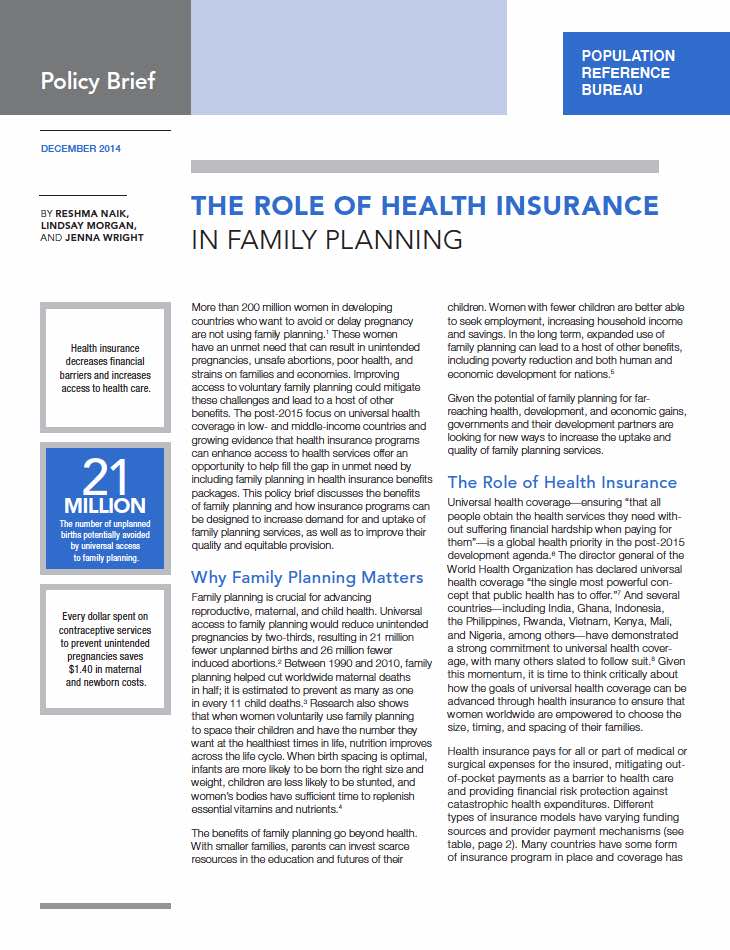
Reproductive Health and Economic Well-Being in East Africa
(February 2015) Women and girls are among the more vulnerable groups in many communities as seen in their lower levels of education and poorer health. Yet the health of women and children is important to the future well-being of any community. The William and Flora Hewlett Foundation’s Population and Poverty Research Initiative (PopPov), together with four European research councils, has sponsored research into how investments in women’s and children’s health contribute to economic development. The research focuses on sub-Saharan Africa with an emphasis on including researchers and institutions from the continent as partners. One of the aims is to generate research findings that could be translated into program and policy recommendations for near-term use.
Results of this initiative and other research show that empowering women with the information and tools necessary to ensure their health contributes to the economic well-being of individual households and the next generation. This brief focuses on the PopPov research conducted in the East Africa region, with relevant information and statistics from other studies included as appropriate. The research from East Africa has examined access to appropriate reproductive health care services that enable safe pregnancy and childbirth, and that provide couples with the best chance of having healthy children and resilient households. The research has also explored women’s desired versus actual family size. Women’s reproductive health and family size have economic implications for households and ultimately for national economic growth.
Reproductive Health Care Linked to Economic Growth
The links among family planning, reproductive health, and economic development are both direct and indirect. Indirectly, family planning and better reproductive health care enable women to achieve their educational and employment goals. Healthy women are more likely to remain in school and to continue working. Directly, family planning such as modern contraception can aid couples in achieving a smaller family size. Smaller families might ultimately help countries experience a “demographic dividend.” The demographic dividend becomes possible when fertility declines and working-age people outnumber dependents. This fertility decline presents a window of opportunity to increase investments in health, education, and gender equity that could boost economic development in the long run. Women’s empowerment, smaller families, better health care, and expanded education and employment opportunities can improve a community’s quality of life.
Among studies from the East Africa region, at the individual level, research from Madagascar and Kenya shows that early childbearing limits women’s educational attainment because women who become pregnant while attending school may drop out. Women with more years of education are more likely to delay marriage, to delay childbearing, and to obtain the skills necessary for gainful employment than women with fewer years of education. At the national level, an analysis by Tugrul Temel using simulation and data from Rwanda found that investments in family planning can lead to increased productivity accompanied by income gains, especially in rural agricultural settings. These results are consistent with findings using data from countries outside of East Africa, including South Africa and Nigeria, and from cross-national analysis showing that lower fertility is associated with higher labor force participation among women.

 ">
">